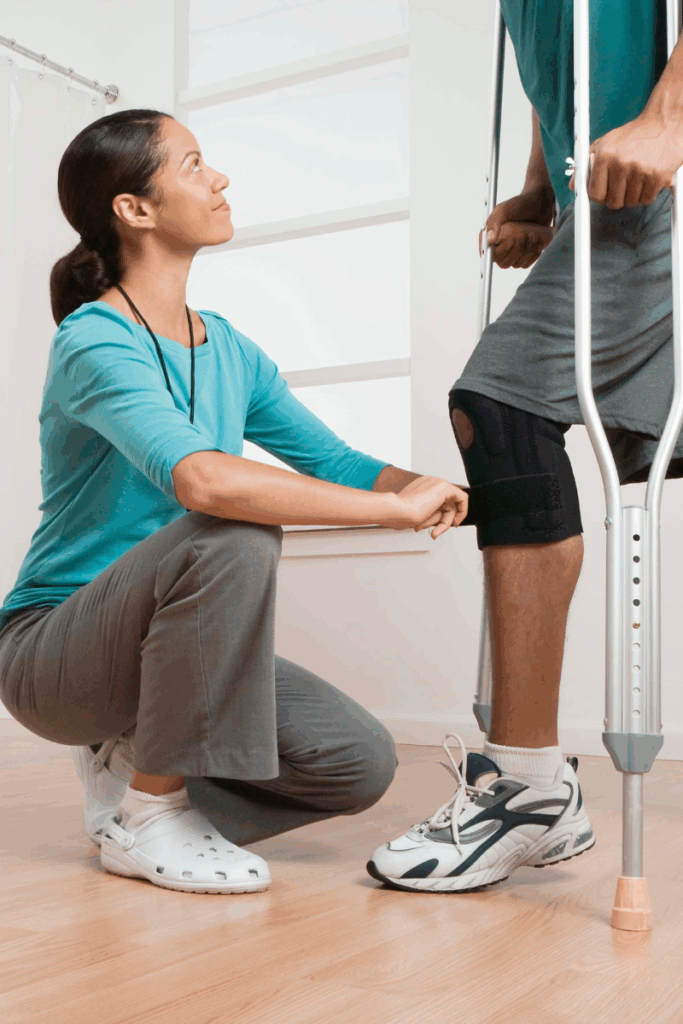Recovering After Joint Replacement: Realistic Timelines & Tips
Posted by: Reform Physical Therapy in Patient Education & Recovery Guides, Physical Therapy Tips, Post-Surgical Rehabilitation on October 20, 2025


What to Expect After Joint Replacement Surgery
Undergoing joint replacement surgery — whether it’s a hip, knee, or shoulder — is a big step toward regaining your quality of life. Most people decide on this surgery because daily pain and stiffness have made movement too difficult. But while surgery can relieve pain, what happens next is just as important as the operation itself.
At Reform Physical Therapy, we often tell our patients that recovery is not a race. It’s a steady climb — one that takes patience, consistency, and teamwork between you and your physical therapist.
If you’re preparing for or have recently had joint replacement surgery, this guide will help you understand what recovery really looks like — including realistic timelines, therapy milestones, and practical tips to help you heal confidently.
How Long Does Recovery Really Take?
Every patient heals at a different pace, but most joint replacement recoveries follow a general pattern. Here’s what you can expect:
Week 1–2: Regaining Basic Mobility
The first couple of weeks after surgery are focused on pain control, swelling reduction, and gentle movement. You’ll likely use a walker or crutches during this stage.
Your physical therapist will guide you through light exercises to improve circulation, prevent stiffness, and help your new joint start moving safely.
Don’t rush this part — slow and steady progress builds a solid foundation.
Weeks 3–6: Building Strength and Confidence
By this point, you’ll begin transitioning from basic movement to functional strength.
Your physical therapy sessions will include balance training, gentle strengthening, and walking practice. You may be able to move from a walker to a cane, and eventually to walking on your own.
Therapists at Reform PT often focus on gait training — helping you walk properly to prevent future pain or compensation habits. This is also when many patients start to feel real improvement in daily activities like standing up, showering, or climbing a few stairs.
Weeks 7–12: Returning to Daily Activities
At this stage, your joint should feel more stable, and you’ll notice a big jump in your confidence.
You’ll work on mobility, endurance, and functional strength — exercises that mimic your daily movements, like squatting, reaching, or walking longer distances.
Patients recovering from hip or knee replacements typically see major progress around the 10–12 week mark, though full recovery may take up to six months depending on your age, activity level, and health before surgery.
The Role of Physical Therapy in Recovery
Physical therapy plays a huge role in joint replacement recovery — it’s what helps you go from surgery to full independence.
At Reform PT, our approach is personalized and one-on-one. You’ll work directly with a licensed therapist during every session, ensuring your program evolves as your strength and mobility improve.
Here’s how PT helps at each stage:
- Early Recovery: Gentle movement reduces stiffness and helps your joint heal properly.
- Mid Recovery: Strength and balance training rebuilds the muscles that support your new joint.
- Late Recovery: Functional training helps you regain normal movement patterns for walking, bending, or climbing stairs.
We also focus on education — teaching you the right techniques to move safely at home, avoid reinjury, and continue your progress between sessions.
Tips to Speed Up the Healing Process
While everyone’s recovery looks different, there are a few key habits that can help you heal faster and more comfortably:
- Stick to your PT plan.
Consistency is the most important part of recovery. The more faithfully you follow your physical therapy routine, the stronger your joint will become. - Move a little every day.
Even light activity — like short walks or range-of-motion exercises — keeps your blood flowing and your muscles active. - Don’t skip your pain management.
Keeping discomfort under control allows you to participate more fully in your exercises, which speeds up recovery. - Eat for healing.
Foods rich in protein, vitamin C, and anti-inflammatory nutrients support your body as it rebuilds. - Be patient with yourself.
It’s easy to compare your progress to others, but your recovery timeline is unique. Focus on small wins — like walking without assistance or sleeping comfortably again.
Common Challenges (and How to Overcome Them)
Even with the best plan, recovery has its ups and downs. Some patients feel frustrated by slow progress or occasional pain flare-ups — and that’s normal.
At Reform PT, we remind patients that healing isn’t linear. You’ll have great days and challenging ones. Our therapists help you adjust your program to match your comfort level while keeping your recovery on track.
Common challenges include:
- Swelling and stiffness: Regular icing, elevation, and movement help.
- Fear of movement: Your therapist will help you build confidence safely.
- Fatigue: Your body is working hard — rest and recovery are part of the process.
Remember: every bit of effort you put in today brings you one step closer to getting your life — and your mobility — back.


Staying Active and Confident After Rehab
Once formal therapy ends, your journey doesn’t stop. Maintaining your progress is key to protecting your new joint for years to come.
Reform PT therapists often create custom home exercise programs to help you stay active long after your sessions are done. Many of our patients return for occasional “tune-up” visits to keep their joints feeling strong and flexible.
Staying active with low-impact exercises like walking, swimming, or cycling helps maintain joint health and overall fitness. The goal is long-term mobility — not just short-term recovery.
Your Recovery, Reformed
Recovering from joint replacement surgery is a journey that takes time, patience, and guidance. But with the right team by your side, it’s one that leads to lasting freedom of movement.
At Reform Physical Therapy, we specialize in helping patients across Southern Maine recover from joint replacement surgery through personalized care, expert guidance, and compassionate support every step of the way.
Ready to start moving with confidence again?
👉 Book your post-surgery evaluation
